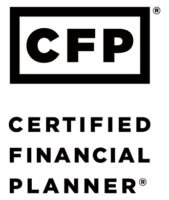Empty Nest, Full Possibilities
The house feels different. Not emptier in a sad way, just lighter. Without the constant hum of piano lessons and late-night snacks, there’s suddenly space (literally and figuratively) to think about what comes next.
Welcome to the empty nest stage: one part financial reset, one part lifestyle shakeup. Empty nesting isn’t a pause, but a pivot point. Routines loosen, priorities shift, and the next chapter starts looking like an opportunity to embrace both responsibility and freedom. With a clear plan, this stage can be a launchpad for smarter financial choices, new adventures, and a life that’s both secure and fulfilling.
Stretching the Freed-Up Dollars
Empty nesting has a way of slimming down the monthly bills. Grocery runs shrink, insurance costs drop once the extra cars are off the policy, and utility bills finally take a breather. And if tuition is behind you too? That’s real financial elbow room.
The question becomes: where should that money go now? The short answer is that it’s different for everyone, depending on your unique situation and financial priorities. Some smart ways to allocate those funds include:
- Boost retirement savings while you’re still in peak earning years.
- Pay off the mortgage faster, if you want to head into retirement debt-free.
- Rebuild the emergency fund, because adult kids do occasionally “boomerang” back.
The important thing is not letting those freed-up dollars disappear into lifestyle creep (the sneaky tendency to upgrade vacations, cars, or impulse buys without a plan).
In addition to looking at how empty nesting affects the monthly budget, this is a great moment to zoom out and check the bigger picture. Questions to consider:
- Are your investment accounts aligned with your long-term goals?
- Is insurance coverage still the right fit, or is it time to adjust?
- Do wills, trusts, and beneficiary designations reflect current wishes?
Balancing the immediate savings windfall with a thoughtful look at long-term priorities helps ensure this stage isn’t just about trimming costs but building freedom and security.
Do You Really Need All This Space?
The empty nest raises a classic debate—downsize or stay put?
Some people love shedding square footage: fewer rooms to clean, lower property taxes, less maintenance. Others keep the family home because they like having space for holidays, grandkids, or the occasional adult child who needs to land temporarily.
There’s no right answer. Downsizing can free up cash and simplify life, but staying put has its comforts. The key is running the numbers to make sure the choice fits long-term goals, not just sentiment.
More Time, More Freedom (and Maybe More Travel)
When kids are grown, money isn’t the only thing that shifts. Time does too. Suddenly weekends aren’t filled with carpools, sports schedules, and college visits. Many empty nesters use this stage to:
- Travel more often, and not just during school breaks.
- Pick up hobbies that were sidelined years ago.
- Volunteer or get more involved in community life.
- Even take on “second act” careers or part-time work that feels more fulfilling than the old 9-to-5 grind.
In other words, this stage can be less about winding down and more about leaning into the things that were waiting in the wings.
Expect a Few Surprises
Of course, not every nest stays empty. Some young adults move back home while figuring out their careers, saving for a house, or navigating life changes. And sometimes, supporting aging parents becomes part of the mix too.
As always, the key is to plan with flexibility. Extra savings, reduced debt, and clear goals create a cushion, so those surprises don’t knock everything off course.
Take the Next Step
Handled well, this stage isn’t about downsizing life, it’s about upgrading it. It’s an opportunity to reimagine what comes next for both your life and your finances. But making the most of it takes more than just trimming expenses or daydreaming about travel. It requires a clear, comprehensive plan.
Whether you’re considering downsizing, shoring up retirement savings, or simply deciding how to put those “extra” dollars to work, having a trusted guide can help ensure this next chapter is not only exciting but financially secure. Get in touch with Four Leaf Financial Planning to start the conversation.








